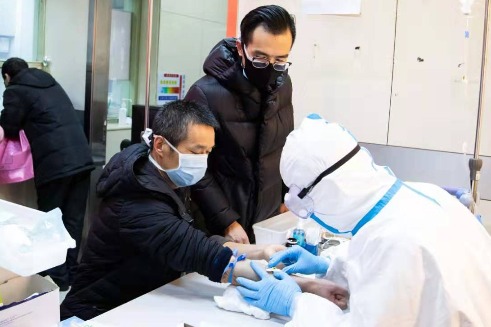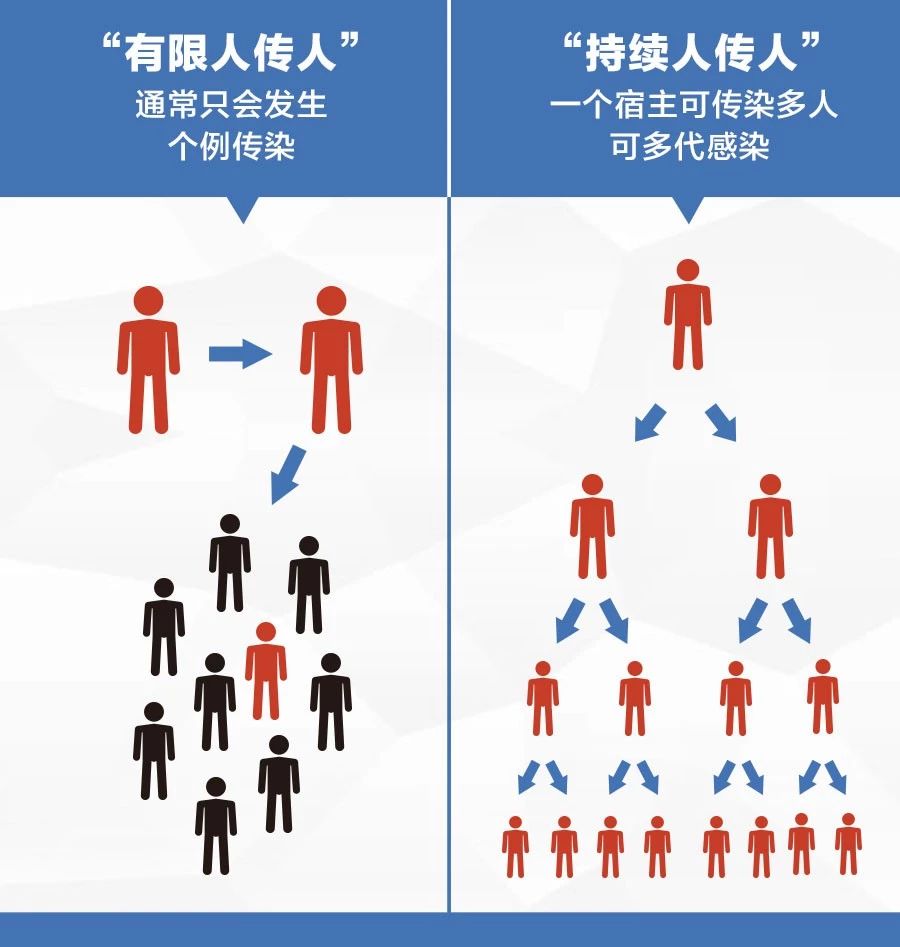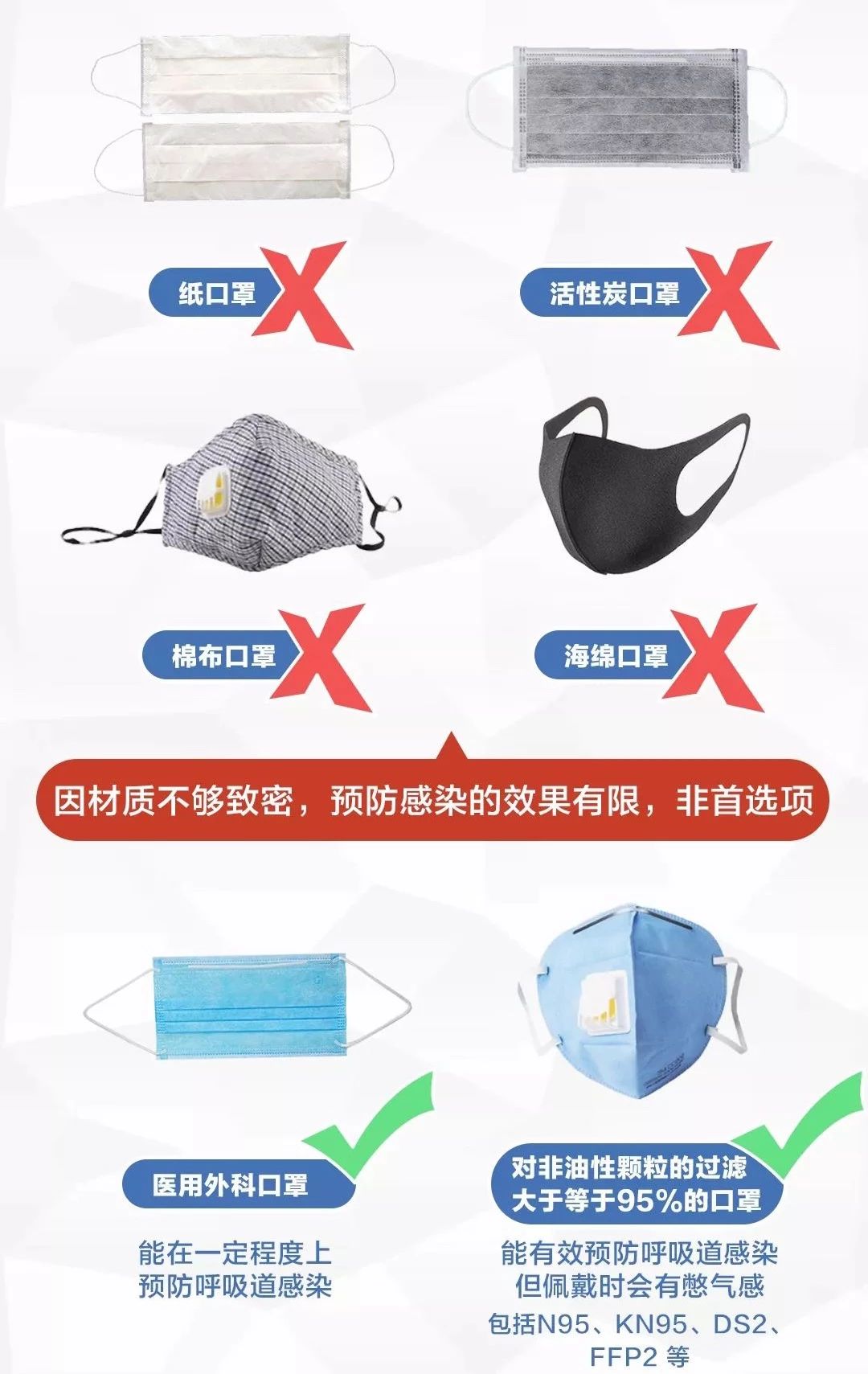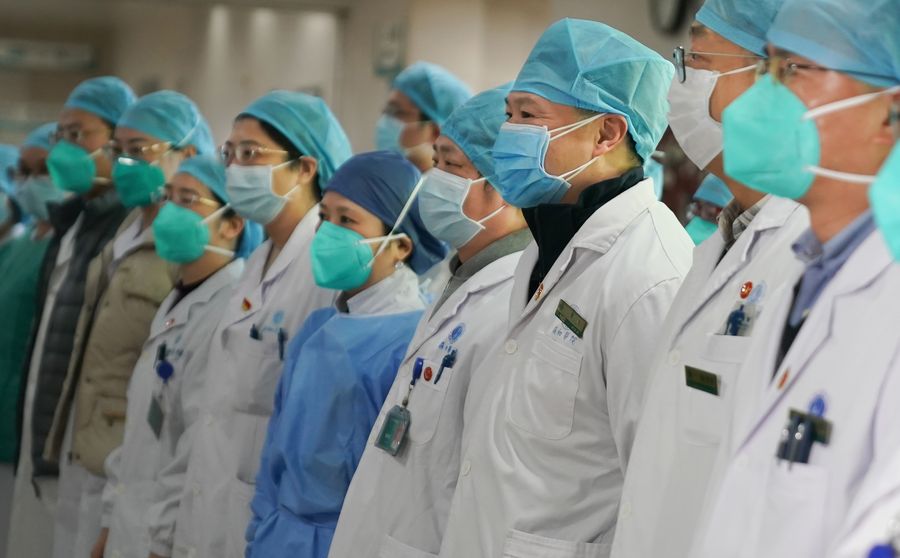Key questions about new coronavirus


1. Human-to-human transmission, limited or sustainable spread?
Zhong Nanshan, a renowned respiratory expert, confirmed on Jan 20 that the new coronavirus can be transmitted among humans. But there are two types of human-to-human spread: limited and sustainable.

The former refers to cases in which the virus spreads from one human to another, who is not able to further infect other humans. The latter refers to cases in which the virus can spread across generations, posing much greater threat to us. No cases of the latter scenario have been detected.
2. Incubation period of the virus
The incubation period of the virus is up to two weeks.
3. Which kind of face masks we should wear?

Face masks that can block particulate matter are the best option, but wearing this kind of mask can feel stifling. Surgical masks are also preferable because they can keep droplets away.
Wearing face masks tightly is also important. If mist appears on your glasses, it means you are not wearing it tightly.
4. Why are medical staff at higher risk of infection?
Why have many medical workers, with all the protective gear they wear, been infected by the virus while few family members of patients contracted the disease?
It is because the aerosol produced in the process of intubation of pneumonia patients is highly contagious. It heightens the risk of medical workers contracting the virus.

5. Super-spreader
A "super-spreader" is highly infectious and can transmit the virus to a considerable amount of people, accelerating transmission and widening the outbreak.
When there is a super-spreader, the medics around are the most vulnerable group to be infected.
6. Do express deliveries from Wuhan need to be rejected?

No. No need to reject normal express deliveries.
Although the virus can survive for a certain period of time after leaving the host, the enveloped virus usually does not survive more than a few hours. Further, "survival" does not mean it could infect people. A few virus particles cannot cause infection. Only when virus activity and concentration reach certain levels can infection happen.
Opening windows to ventilate rooms could prevent influenza, as this decreases viral concentration. The express delivery boxes have been entirely ventilated, and could not transmit the virus.
7. Now what can we do?
The new coronavirus has mutated to enable people-to-people transmission. In the human body, its virulence may continue to mutate. Now is a critical moment to prevent and control the virus.
Everyone should stay away from wildlife and gatherings, and take heavy precautions. The fewer people get infected, the less likely the virus will mutate into a highly contagious one.
- China's CR450: A new era of high-speed rail at 400 km/h
- TAN SUO SAN HAO to pioneer future of deep-sea exploration
- Xi's discourses on Chinese modernization published in Japanese
- Officials summoned over alleged garbage bin food served to students
- Caring hearts help to enhance quality special education
- Xi sends condolences to South Korean acting president over plane crash




































